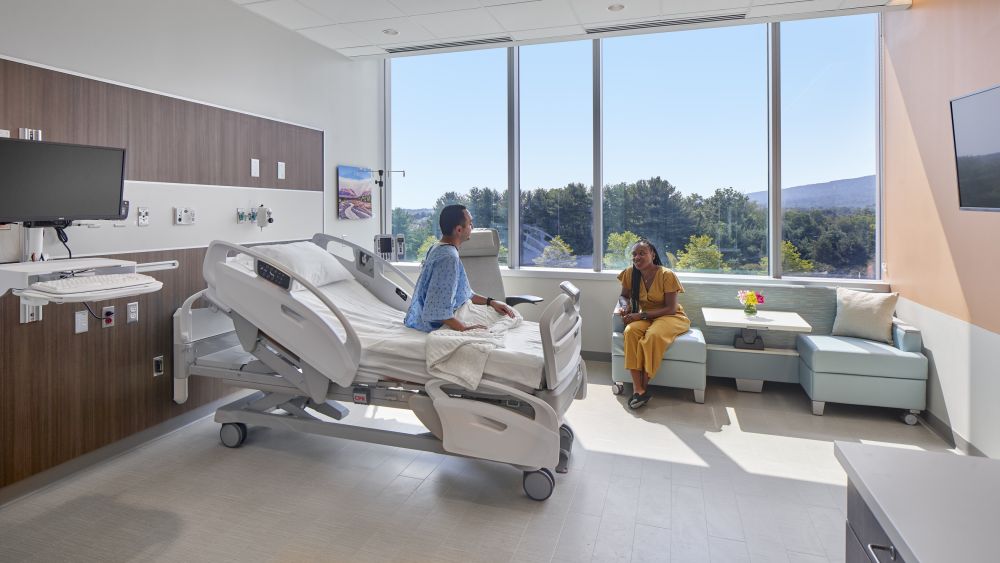ICU nurse Kaelee Stone discusses healthcare design with Metropolis magazine
October 4, 2022
Social Sharing
Metropolis magazine features perspectives from Kaelee Stone, a consultant within Blue Cottage of CannonDesign, in a new piece exploring the boots-on-the-found perspectives of healthcare practitioners.
According to Metropolis, "The global pandemic made us all acutely aware of how design, whether for dedicated medical buildings or other building types, can affect our ability to respond to health emergencies as well as our daily well-being. Those most attuned to this connection are a niche group of architecture and design practitioners who also have medical experience."
In the piece, Kaelee discusses what is and isn’t working for patients, staff and facilities when it comes to offering quality care with wellness-focused benefits.
Here's an excerpt from the piece:
"We all remember the intense stories from the early days of the pandemic, when medical teams lacked PPE and healthcare institutions didn’t have enough space to properly care for patients. The ingenuity health care showed in that moment still inspires me, and many of the ideas that teams came up with in those moments were carried forward into today.
But at the same time, health systems recognize that global pandemics are inherently unique and are focused on bigger-picture ideas that improve care, pandemic or not: spaces rich with flexibility, beds and patient rooms that can more easily be upgraded to accommodate critical care, self-cleaning materials, and strategies for making isolation less lonely. All of this adds up to important change, but it’s not entirely about future pandemic prevention.
An interesting example of this can be found in our current work with University of Cincinnati (UC) Health. Our teams at CannonDesign and Blue Cottage of CannonDesign have helped them incorporate a remarkable level of flexibility into the design of their new emergency department. Once complete, it will feature a separate entrance with mass triage space and a 32-exam-room pod that can run in “pandemic mode” to treat infectious patients. These responses empower UC Health in the face of a future pandemic, but also in a variety of other scenarios."



